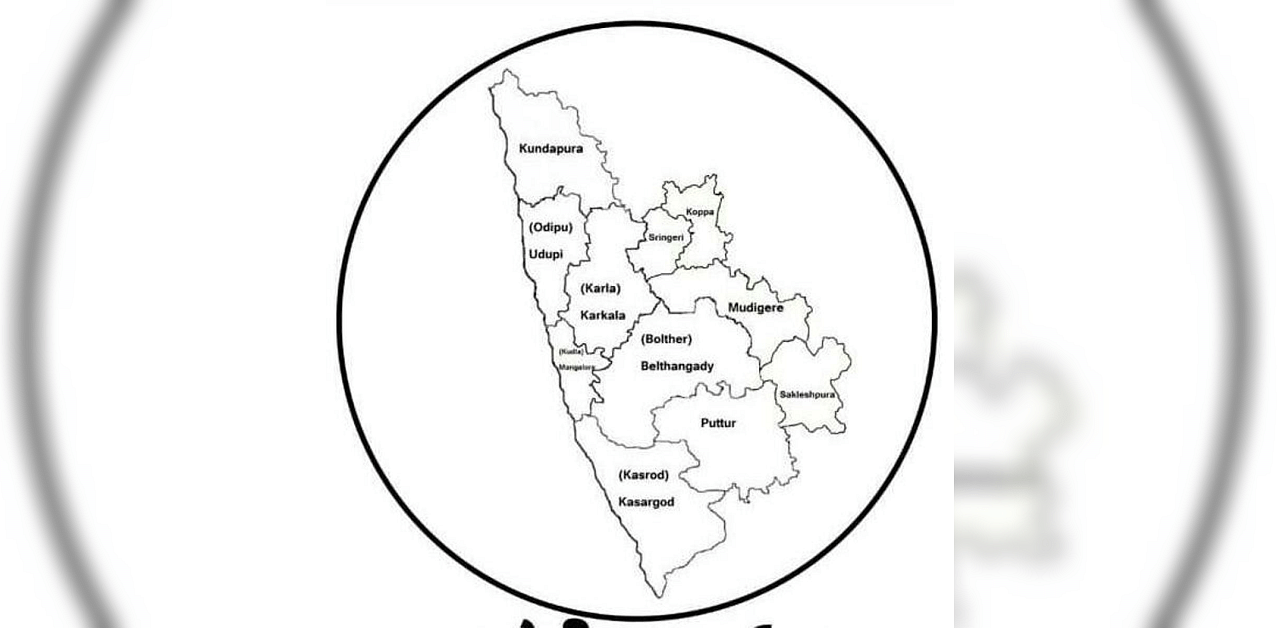
As Tulu language, one among the five Dravidian languages awaits inclusion in the Eighth Schedule of the Constitution, ‘Tuluvere Paksha’ succeeded in getting recognition from the Election Commission of India (ECI).
The recognition, by the ECI under Section 29A of Representation of the People Act 1951, has given wings to the political aspirations of the Tulu-speaking people. The party’s immediate priorities are to push forward the demands of Tulu organisations aimed at the development of ‘Tulu Nadu’.
Even before getting recognition, like-minded people under the aegis of Tulunada Okkuta had been initiating different activities aimed at the development of the Tulu language and Tuluvas for many years. They had even carried out a protest against the Yettinahole flood waters diversion project and had hoisted the flag of Tulu Nadu during the Kannada Rajyotsava celebrations.
Like-minded people had long ago realised the need to launch Tuluvere Paksha (TP), after realising that political parties would never fulfil the aspirations of Tulu-speaking communities or secure identity for Tulu Nadu, language, culture and tradition.
Official recognition
After fulfilling all criteria, the TP received official recognition a year later from the ECI on February 5, 2021. TP Central Committee president Shailesh R J says: “The present-day Tulu linguistic majority area is confined to the region of Tulu Nadu comprising districts of DK and Udupi in Karnataka and the northern parts of Kasaragod district in Kerala, up to River Payaswani, or Chandragiri.”
A few portions of Malnad too has a large number of Tulu-speaking people. “When the country was reorganised based on languages, Tulu Nadu was partly shared among Kerala and Karnataka. When there was a separate state for Tamil, Telugu, Malayalam and Kannada-speaking people, why there cannot be a separate state for Tulu Nadu?,” he asked.
“The party will demand a separate statehood for Tulu Nadu by unifying Tulu-speaking areas in Kasargod, DK, Udupi and Malnad districts and demand the inclusion of Tulu language in the Eighth Schedule of the Constitution.” As per the 2011 Census report, there are 18,46,427 Tulu-speaking people in India.
Tulu-speaking people are larger in number than speakers of a few languages that were recognised in the Constitution. “Tulu language is eligible to be recognised under the Eighth Schedule and yet we have failed somewhere to get Tulu language its due prominence,” he felt.
Enrolling members
Having received recognition, the Tuluvere Paksha has begun enrolling members. Tuluvas from outside Karnataka, especially from Mumbai, New Delhi and even those working in foreign countries, had enrolled as life-time members of the party, he informs.
With an eye on the Zilla and Taluk Panchayat elections, Tuluvere Paksha has been grooming candidates wherever the party has a strong base.
Soon the party will field candidates in all the elections including Assembly and Parliament. “When we promote Tulu, it does not mean that we oppose other languages. We just want Tulu to be recognised,” he emphasises.
The party flag will be readied after the ECI allocates a symbol. The party will be officially launched soon after constituting the office-bearers in various taluks of Dakshina Kannada and Udupi districts.
“There are ample opportunities for regional parties. People are already disappointed with the national parties and are in search of an alternative that will respond to their needs,” feels Shailesh.
The TP also has been seeking feedback on issues like what should be the focus of the party, and so on, in social media. The Twitterati has extended its full support to the survey by insisting that the Tulu language should not be a mere language but as a medium of instruction in schools in Karnataka and Kerala.
“Standardisation and Unicoding of Tulu script,” was another important demand of the Twitterati. “Some have even said that children should know the history of Tulunadu to make them proud of their culture and heritage,” informs Shailesh.